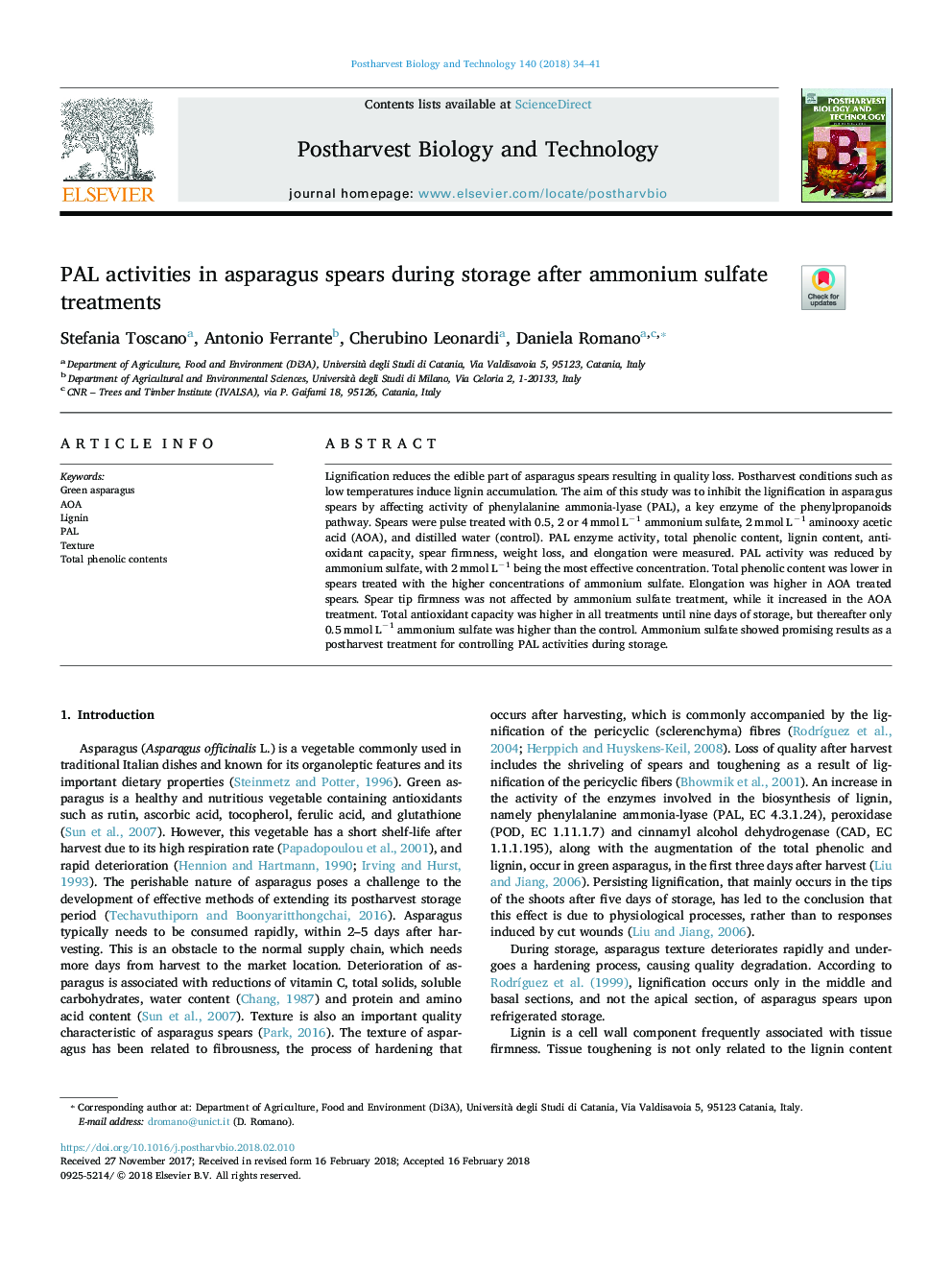| Article ID | Journal | Published Year | Pages | File Type |
|---|---|---|---|---|
| 8881926 | Postharvest Biology and Technology | 2018 | 8 Pages |
Abstract
Lignification reduces the edible part of asparagus spears resulting in quality loss. Postharvest conditions such as low temperatures induce lignin accumulation. The aim of this study was to inhibit the lignification in asparagus spears by affecting activity of phenylalanine ammonia-lyase (PAL), a key enzyme of the phenylpropanoids pathway. Spears were pulse treated with 0.5, 2 or 4â¯mmolâ¯Lâ1 ammonium sulfate, 2â¯mmolâ¯Lâ1 aminooxy acetic acid (AOA), and distilled water (control). PAL enzyme activity, total phenolic content, lignin content, antioxidant capacity, spear firmness, weight loss, and elongation were measured. PAL activity was reduced by ammonium sulfate, with 2â¯mmolâ¯Lâ1 being the most effective concentration. Total phenolic content was lower in spears treated with the higher concentrations of ammonium sulfate. Elongation was higher in AOA treated spears. Spear tip firmness was not affected by ammonium sulfate treatment, while it increased in the AOA treatment. Total antioxidant capacity was higher in all treatments until nine days of storage, but thereafter only 0.5â¯mmolâ¯Lâ1 ammonium sulfate was higher than the control. Ammonium sulfate showed promising results as a postharvest treatment for controlling PAL activities during storage.
Related Topics
Life Sciences
Agricultural and Biological Sciences
Agronomy and Crop Science
Authors
Stefania Toscano, Antonio Ferrante, Cherubino Leonardi, Daniela Romano,
